- Home
- James Phelan
Red Ice Page 11
Red Ice Read online
Page 11
Zoe looked across at Fox, but didn’t say anything.
He turned the wheel, headed away from the drive to the dirt track that led to the neighbours’ place, and gunned it.
33
WASHINGTON, DC
Valerie sat across the desk from McCorkell, but her eyes kept tracking to the communications techs, waiting for news of Hutchinson.
“What did Bowden say?” she asked.
“About China?” McCorkell replied, settling back into his chair.
She nodded.
“Grunted, said he’d look into it.”
“Doesn’t he see—”
“Don’t worry about him. I’m going to contact State and get them to alert some Chinese authorities we got on-side,” McCorkell said, picking up the landline phone and cradling the handset between his shoulder and chin as he dialled a number. As the line began to ring he asked Valerie, “How many people knew about this op to move Babich?”
“Only Hutchinson knew which aircraft and flight plan he was taking—he chose it at the airport.”
“We’ve got two aircraft on-station and working up a search grid,” a DoD tech said loudly. “Real-time images are feeding in.”
McCorkell and Valerie jumped up and watched the LCD screen over his shoulder—brilliant sea in every direction, the morning summer sunshine picking up the water like a million little pieces of glass.
“Talk about a needle in a haystack,” Valerie said. “Navy will have a surface vessel in the area in two hours. Doesn’t sound like much of a Plan B, does it?”
McCorkell shook his head, then spoke rapid-fire to a colleague on the China desk at the State Department and hung up seconds later. He moved closer to the main screen, where Valerie and several of her FBI colleagues stood, watching, waiting.
“We got radio traffic from the scene,” the Air Force officer said, returning to his headset mic, “Repeat last NAVSO. Which bird? Copy that.”
He tapped away at his keyboard and a new image was brought up on the screen. They watched as the picture zoomed in on a speck in the ocean.
“Is that—?”
“Parachute,” McCorkell said. That was good. The image changed again, focusing in on another spot in the ocean that was revealed to be … a man, wearing a life vest, floating on his back, waving.
“We’ve got him!” Valerie said. She jumped up and yelled to the room, “We’ve got visual on Hutchinson—he seems okay!”
The room erupted in whoops and high-fives and a couple of hugs were shared among the FBI staff. In the CIA corner Bowden didn’t skip a beat, focused hard on one thing: hunting Babich.
“Beacon on his vest is activated but the signal was weak, PC3. out of Naples did this visual fly-over and—as you can see—he waved to ’em,” the tech said. “Navy has an SH-60 headed there now, five minutes out.”
McCorkell was beaming—one piece of the puzzle had been found. Three more remained: Fox, Babich, and a deadline to something.
34
GIVERNY TO PARIS
Fox drove hard along the dirt track to the neighbouring farm—the Golf almost launching into the air as they mounted a grassed ledge and careened back onto the gravel driveway. They had maybe six hundred metres’ lead on the pursuing car. Five-fifty. The Audi was gaining fast, a blur of motion in his rear-view mirror as he kept the accelerator flat to the floor.
“Al, how many cars back there?” Fox asked. The guy at the house had said two.
“Just the one,” Gammaldi replied, peering over the back seat.
Fox slid the Golf through the tight sweeping bend before the road that led onto the highway. There was another hostile vehicle waiting somewhere.
“Hang on!” Fox said, braking hard at the final turn and then flooring the gas through it, power-sliding onto the smooth bitumen. The engine buzzed up through the gears, the Audi gaining on them with every second. At the very least there was a six-cylinder turbo diesel powering that thing—he hoped that was it.
“They’re five hundred metres back,” Zoe said.
“I know!”
“Take the highway to Paris?”
“I think so, we’re too out-gunned to stop and leave the car.” Fox saw her pulling her BlackBerry from her belt.
“I hope there’s help close by,” she said, putting it to her ear.
Tang tang tang!
The Audi gunner fired at them, the rounds hitting the hatch door of the Golf and shattering Gammaldi’s side window.
“Shit!” Gammaldi got down, pushing Kate into the foot-well.
They were closing fast on the town of Giverny. There was a truck up ahead—the Audi four hundred metres behind and gaining on them.
“This’ll be tight!” Fox yelled. “Hang on!”
He swerved around the truck, but the Audi was caught for a moment in the intersection as they skirted the town. Five seconds and their pursuer was back in the chase again, now some eight hundred metres back.
“There’s an armed unit near Vernon. We’ll meet up at the highway,” Zoe said, ending her call.
“We’ll need more than a couple of cops—”
Fox slammed on the brakes as a car veered in front of them, which he overtook on the inside and then headed out of town. Behind, the Audi was nearing them, fast.
“There’s no way—” Fox began as his foot stayed flat to the floor and the engine red-lined and whined its way up through its seven gears. “There’s no way we can outrun them!”
35
WASHINGTON, DC
“Hutchinson is in a SAR chopper,” Valerie said. “Gunshot to the leg, but he’ll be fine.”
“The others?”
“They … they’re all dead,” she said, her voice flat. “The aircraft is still en route to Rome. Navy and Italian Air Force are working on options.”
“Okay,” McCorkell said, looking towards Bowden’s team. A pair of new arrivals had joined him—Air Force non-commanders, setting up gear in a hastily cleared piece of bench-space. “Let’s hope that Hutch will be back on deck any moment.”
“He wanted to check in on things—the medic had to threaten to knock him out to stop him demanding a radio.”
“Least we know he’d be good to go,” McCorkell said.
“We need to move on now, to Babich.”
“Abso-fucking-lutely. You take your team and work on all known references between Babich, Umbra Corp and China; government, businesses and underground.”
“On it.”
“I’m gonna plough through Babich’s background, see what we’ve missed, and I’ll keep on State’s butt.”
Valerie nodded and went over to her fellow FBI agents to brief them into teams.
McCorkell plugged his laptop into the secure LAN and watched some video files of Babich’s ‘interrogation’—his softening up over the first couple of months of detention, where they just got him to talk about whatever he wanted—usually either the current political machinations in Russia, the good old days that he missed, or some of his achievements in the seventies and eighties working for the KGB. There, Babich had made a name for himself writing papers on how Reagan’s presidency so successfully hindered the Soviet Union’s economy. He explained how the US held up Russia’s ability to sell natural gas to Europe while actively working to keep gas prices low, starving the Soviet Union of foreign capital and accelerating its fall by encouraging it to over-extend its economic base through the arms race. Babich had sworn he’d not let that happen again, and saw economic and business success as the tool with which to beat the West: fight the capitalists at their own game within a regulatory system that was far easier to ‘navigate.’
After watching a few mpegs, McCorkell realised the difficulty of his task: finding the needle in a haystack before it struck. Locating Babich’s wild card would be like connecting all the dots pre-9/11 and being in a position to prevent the hijackings—an impossibility … He went back to the files, opened up the transcript
s. They were indexed, a kind of CliffsNotes version of six months’ worth of discussions Babich had had with members of the FBI and Justice Department.
Skim-reading, McCorkell discovered that Babich had a love– hate relationship with Gorbachev. By the late eighties, when Gorbachev ushered in his programs of glasnost—political openness—and perestroika—political and economic restructuring—the Soviet economy was already suffering from both hidden inflation and supply shortages. This was aggravated by an increasingly open black market that undermined the official economy, and so many of Gorbachev’s cheka pals were in on it—the corruption was endemic. This was when Babich first started to make money on the side, selling oil syphoned off from surplus state military reserves, importing old Western vehicles and selling them for incredible profits. After three years he’d made close to two million US dollars, a decent fortune for that place and time. His continued work for the KGB through to its transformation into the FSB in 1991 kept him safe, connected and valued. So, by the time his country fell apart, he had the start-up capital, contacts and security to be among the most successful of the emerging oligarchs.
McCorkell looked over to the FBI team; they were young—late twenties and early thirties—driven and adept, a testament to the good work his country could do when it wanted to. Almost impossible to imagine them going down the path that so many of their counterparts in Russia had gone down in the politics vacuum …
He skipped a few paras until the collapse of the Soviet Union in 1991 when Boris Yeltsin seized power. Babich’s first ‘legitimate’ business was formed then, a few years after Gorbachev had enacted the Law on Cooperatives, allowing for the first time in the communist country private ownership of businesses in the services, manufacturing and foreign-trade sectors. Late 1991 Babich started making his big moves—he’d quietly been buying up oil rights in a syndicate, profiting hugely from the Gulf War price shocks, and by the end of that year he was a billionaire.
McCorkell could see that with the emergence of Babich’s Umbra corporation and feeding the state money to keep the ministers happy, Babich himself was free to do more on his own, out in the open. He kept his trusted former security comrades with him and … McCorkell knew the rest, knew it well. That’s when the file got really detailed: drawers full of intel, terabytes of data linked to agencies around the globe, surveillance photos and audio and visual intelligence, much of it collected by the Russian security services. But Babich had kept the right people happy, never interfering with Russian politics or offending those in power, unlike so many other oligarchs.
But he was never quiet.
Glasnost … It kept running through McCorkell’s mind. Glasnost … It resulted in greater freedom of speech. Glasnost … openness … the people …
McCorkell sat up, typed in some search terms, looked at the date of Babich’s last government employment: 1992.
The last two years of his KGB/FSB employment were blank. Before that, he’d been assigned to a special project reporting directly to the president, and then he’d retired with a full pension—the monetary compensation he graciously turned down, citing the tough economic times the state was going through …
McCorkell clicked through the links on Intellipedia to hunt references to Babich’s last assignment. Nothing but a vague lead into a higher clearance CIA file, code-word protected. No wonder it wasn’t included in these notes. He typed in his level one Yankee White clearance, itself good enough to access anything the President was cleared to know about. Thirty seconds later he received a call and coded into the crypto desk at Langley. Moments later the file was remote-opened. It was small, just a few lines. Babich’s last reported task before those missing two years was an assignment to the Special Alexander Nikolaevich Yakovlev Project.
The only details were that it was … a specific order from Gorbachev to find a state document. Success unknown. Strange …
36
GIVERNY TO PARIS
Fox turned a hard right—the tyres squealed in protest as he hammered the Golf through the outskirts of town, dog-legged through a small street that took them behind the main avenue, glimpses of the Audi in between buildings.
“Hang on!” he said, as they flashed through an intersection, Fox pulling a handbrake turn and heading up the ramp to the highway.
“Duck!” Gammaldi yelled.
The window next to Fox’s head exploded as two shots ripped through the roof and tore a jagged wound through the top of the windscreen. It was cracked like a spider’s web, but didn’t smash.
Zoe banged at her window control, held in place. She smashed the glass with the butt of her pistol and bashed out the safety glass. They were doing a hundred and forty as Fox merged onto the highway while Zoe manoeuvred her torso out the open window like some kind of ballerina.
The Audi raced along the emergency lane, sticking hard along the shoulder through a bend in the road and gaining fast. Zoe was taking aim.
“Zoe—back in!”
She ducked into the cabin as Fox crossed in front of a Smart car stopped at the hard shoulder, its driver standing on the grassed embankment. The Audi followed hard on their tail, didn’t veer or slow as it punched into the stopped car, sending it airborne and into the back corner of the Golf. Fox tried to control his car as it slid, brakes locking and unlocking as the electronics fought to compensate, while metal and glass rained down behind them, the remnants of the demolished Smart car. He took the pressure off the accelerator, turned the steering wheel so the tyres pointed into the spin and powered out of it—pedal to the metal. They were going flat-out to rebuild speed.
The Audi regained momentum and had closed the gap. The gunner leaned out and fired, but he’d aimed too low, the submachine-gun rounds chewing up bitumen near the Golf’s tyres. Fox turned just enough to get away from the stream of lead that was tearing up the highway in their wake.
Still the Audi kept charging forward, cutting across lanes and slamming into the back of the Golf. Fox fought to straighten as Zoe leaned through the seats and aimed her pistol out the back window.
“Cover your ears!” she yelled. Kate and Gammaldi were already hunkered down as low as they could get in the foot-well as Zoe blasted off ten rounds in four seconds into the grille and bonnet of their pursuer. She ejected the SIG’s clip and slapped in another. The Audi fell back a few metres as some of her next fifteen rounds blasted through the windscreen on the driver’s side; an eruption as the glass was painted with blood. The Audi moved sharply, speeding across the lanes, its engine steaming and rubber screeching, the high-speed turn making the tyres bite into the road and forcing the vehicle to roll and bounce in mid-air twice, before bounding along the road in a shower of debris and smoke, finally sliding onto its roof and into an adjacent wheat field.
Over his shoulder Fox saw the mayhem, a cloud of dust and then an explosion from the field. Brujon, who had been cowering on the back seat, brought his head up and Fox smiled at him.
The others in the car were quiet, still. Zoe looked at the empty SIG pistol in her hand like she was seeing it for the first time. Maybe that was the first time she’d taken a life with it, all that muscle memory-training taking over. She started to shake.
Fox kept the speed climbing. One-fifty. One-sixty. The wind howled through the glassless windows and cracked windscreen.
“Is anyone hurt?”
“No,” Gammaldi said, sitting up again. “We’re good.”
The fireball of the Audi grew smaller in the background, smoking, steaming; the chaos of the traffic slowing to inspect, but Fox kept driving. Away. Towards Paris. As fast as he could, but even at this speed it was a good half hour.
Then, in the rear-view mirror … A ghost? Oh shit.
“Get down!” Fox yelled, as he swerved, bullets ripping the back of a campervan that they were flashing past.
Fox weaved fast through the other vehicles on the highway. In the rear-view mirror, an identical Audi was in hot pursuit, a heavily ar
med guy hanging out the passenger-side window. Predator and prey. Closing fast.
37
WASHINGTON, DC
“Thanks,” McCorkell said, as an FBI tech helped him access some archived files. He wasn’t a total Luddite—he managed to keep up with the best of them, but sometimes computers and he … He opened the file and waited a moment for it to decrypt.
Top Secret-SCI-CI
Special Alexander Nikolaevich Yakovlev Project.
PROJECT DESCRIPTION: Since the Great Patriotic War (WWII) it had been the official policy of the Soviet Union to deny the existence of the secret protocol to the Soviet–German Pact, for fear of local political fallout—
Soviet–German Pact? McCorkell scrolled down to read the description … the pact is known as the Molotov–Ribbentrop Pact.
Okay. That was the Nazi–Russia pact of World War II where they signed some kind of non-aggression agreement. There was a secret protocol attached to the treaty, revealed by the Germans, but denied by the Russians. They were good at that, masters of misinformation or simply withholding it from public view. He knew of the non-aggression pact, but in no more detail than anyone who knew World War II history and he remembered reading about these secret protocols in the media coverage at the time they came out in the press. When was it … 1992? Yes, he confirmed, as he scrolled further down the document, the story broke in 1992 … Same year Babich got out. This report was compiled by a former Moscow CIA desk at Langley, dated 1993. He read on:
It was only after the Baltic Way demonstrations of 23 August 1989, when over two million people created a human chain on the 50th anniversary of the signing of the pact, that the Russian policy of denial changed. At the behest of Mikhail Gorbachev, Alexander Nikolaevich Yakovlev, the ‘godfather of glasnost,’ headed a commission investigating the existence of such a protocol … It was on that search team that Babich spent his last official working years. In December 1989, the commission concluded that the secret protocol had existed and revealed its findings to the Soviet Congress of People’s Deputies … In 1992, the document itself was finally declassified, after the dissolution of the Soviet Union.

 10
10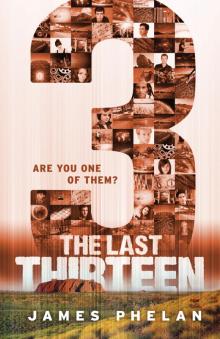 3
3 Survivor
Survivor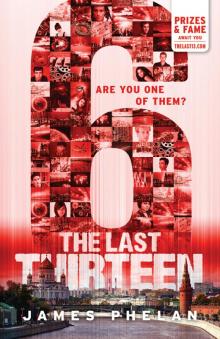 6
6 The Hunted
The Hunted Quarantine
Quarantine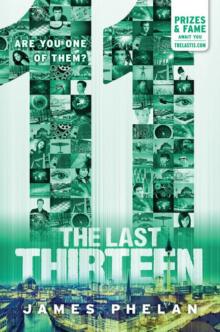 11
11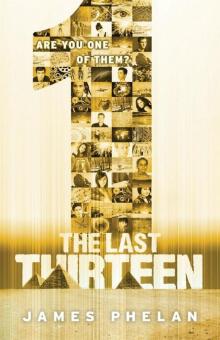 The Last Thirteen - 1
The Last Thirteen - 1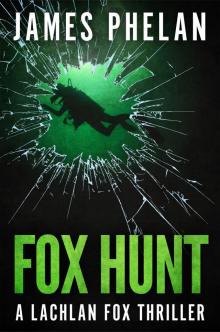 Fox Hunt
Fox Hunt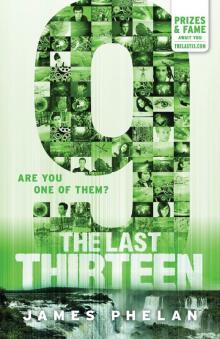 9
9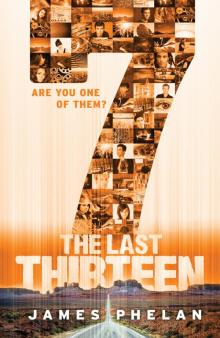 7
7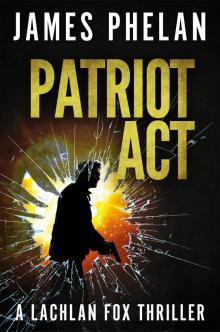 Patriot Act
Patriot Act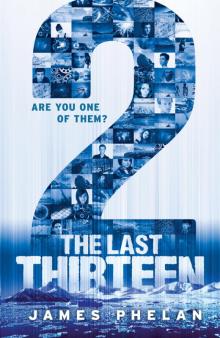 2
2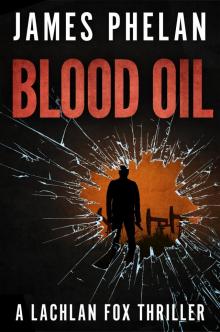 Blood Oil
Blood Oil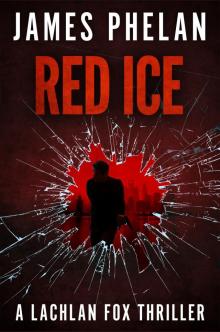 Red Ice
Red Ice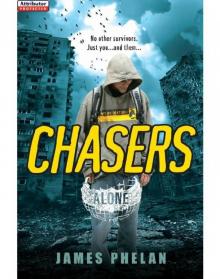 Chasers
Chasers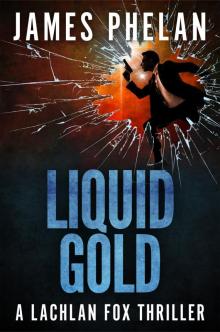 Liquid Gold
Liquid Gold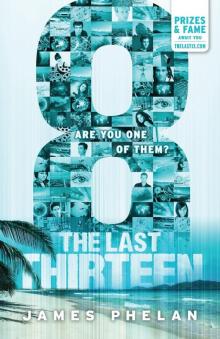 8
8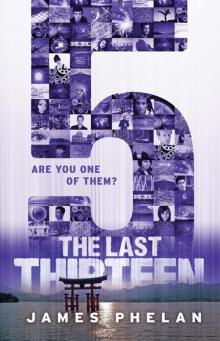 5
5 The Spy
The Spy Kill Switch
Kill Switch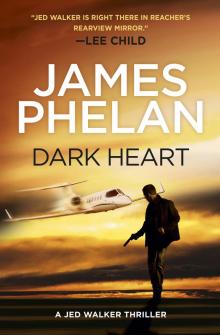 Dark Heart
Dark Heart